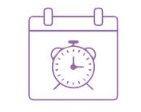As much as everyone hates to admit it, midterms are coming up faster than you think. If you are looking for ways to deal with stress or are in need of some studying tips, look no further. – J. Johnson.
[media-credit name=”Design by Janna Marnell” align=”alignright” width=”272″] [/media-credit]Avoid caffeine, alcohol and nicotine
[/media-credit]Avoid caffeine, alcohol and nicotine
In recent years, the Juul has been seen in the hands of many adolescents. While people may think it is used as a stress reliever, it is the exact opposite. Nicotine impacts the area of the brain where decision making and emotions are involved. Alcohol can also disrupt the decision making process as well as getting enough sleep. While caffeine may be number one on the list of priorities to strengthen the brain, it can also trigger the “fight or flight” response in our brain. This can result in anxiety and heightened emotions. If you are struggling to completely withdraw from caffeine, green tea is a great way to reduce your intake and improve brain function.
[media-credit name=”Design by Janna Marnell” align=”alignright” width=”194″] [/media-credit]Teach yourself the material
[/media-credit]Teach yourself the material
Are you struggling with memorizing your study notes? Use abbreviations and color code specific sections to help your brain visualize what stands out. Creating your own color key can be a unique way of learning, not just for midterms, but to get into the routine of studying in general. The trick is to write your notes if you are going to use them to teach other people. By doing this, you create a study guide that you can understand and repeat to yourself multiple times. Studying out loud can be helpful for memorization, just as if you are memorizing the words to a song.
[media-credit name=”Design by Janna Marnell” align=”alignright” width=”140″] [/media-credit]Switch your phone to ‘Do Not Disturb’
[/media-credit]Switch your phone to ‘Do Not Disturb’
It is no surprise that our generation is addicted to our cell phones. With Apple’s iOS update, the ‘Do Not Disturb’ feature mutes any notifications including calls, texts, social media alerts, etc. This is a great toll to use to prevent any distractions from the world inside our phones. It is an addiction where we are constantly picking up our phones and giving more attention to personal technology than to our education. ‘Do Not Disturb’ also notifies you when your emergency contacts are calling if you add them to your Favorites. This can be set up through Settings > Do Not Disturb > Allow Calls From.
[media-credit name=”Design by Janna Marnell” align=”alignright” width=”114″] [/media-credit]Physical activity
[/media-credit]Physical activity
You may know that exercising can prevent or help people get over illnesses. The same works for stress or anxiety. Any type of physical activity like dancing, running or even taking a nice walk releases endorphins in the brain that create feelings of happiness. Quinnipiac offers many exercise classes through IMLeagues including Barre class, Bootcamp, Butts & Guts, Pilates, Spin and many more. It is important to have a stable mind set when midterm week comes around, why not take an hour or two out your day to train your brain?
[media-credit name=”Design by Janna Marnell” align=”alignright” width=”118″] [/media-credit]Listen to instrumental music
[/media-credit]Listen to instrumental music
While many students can agree that music is on the top of their list for a study session, vocal music can cause you to concentrate more on the words than your assignments. On the contrary, instrumental music has been known to relax the brain, allowing it to focus on the material in front of you. For many people, it is hard to concentrate when many things are going on in our surroundings. If you are unable to find a quiet space to work, try putting in your headphones and scroll through the many instrumental playlists that Spotify has to offer.
[media-credit name=”Design by Janna Marnell” align=”alignright” width=”141″] [/media-credit]Time management
[/media-credit]Time management
A planner or calendar is going to be your best friend when it comes to time management. Creating a study guide as soon as your professor lets you know of the exam/quiz/test date can help you keep track of deadlines. While studying at night can help you retain information the next day, it does not work as well if you study every night for weeks before the exam date. With the technology we have today, we can set reminders in our phones to go off at certain times for when we need to study. It is smart to take advantage of this when you are a busy college student that balances education, work, friends and other events that require attention.












